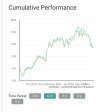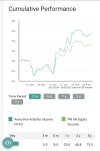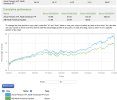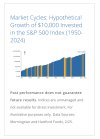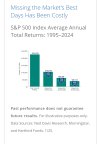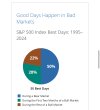Kompany Car
Well-Known Member
- Joined
- 19 Sep 2015
- Messages
- 4,270
Thats how it is, in the last 5yrs the Nasdaq 100 has grown by 134.7%, but along the way there have been sell offs and recovery. Just the natural cycle of the stock market that works as much on sentiment as anything tangible.last 2 weeks I'm up 2.7%, today I'm down 1.8%, overall up 5.3% in 13 weeks. I'm still happy



